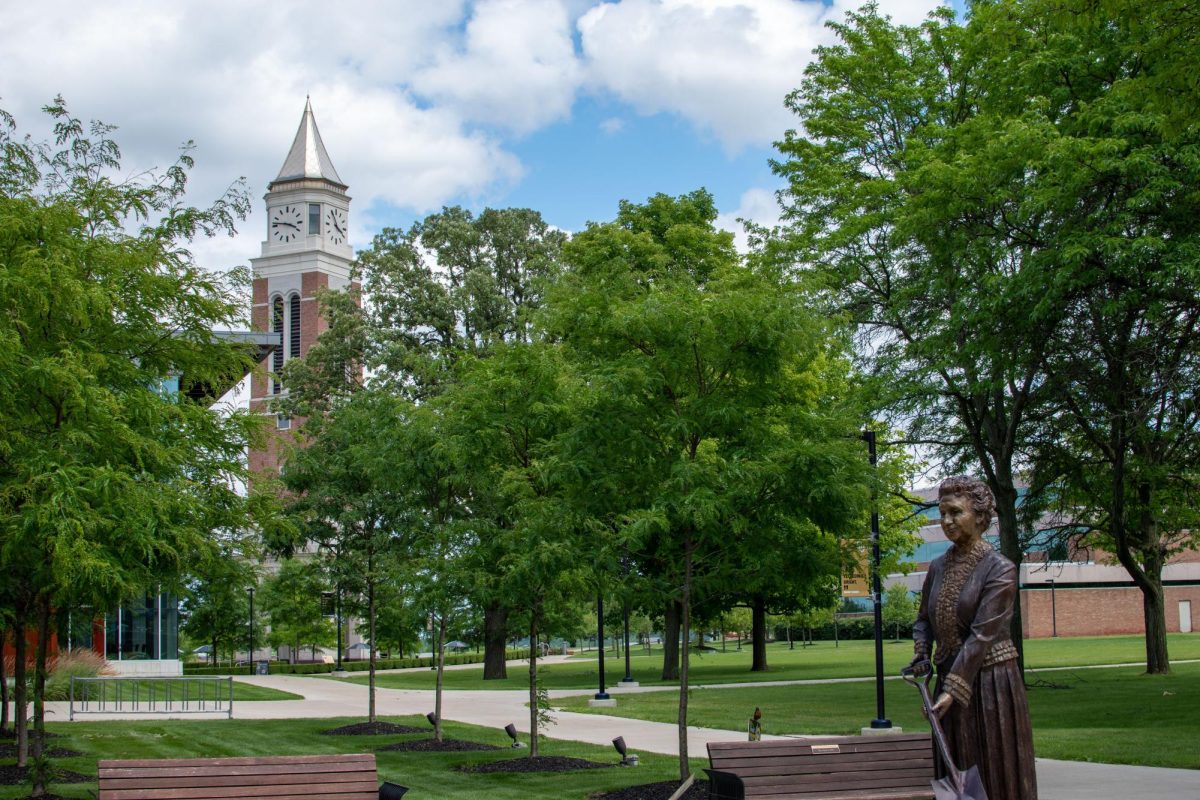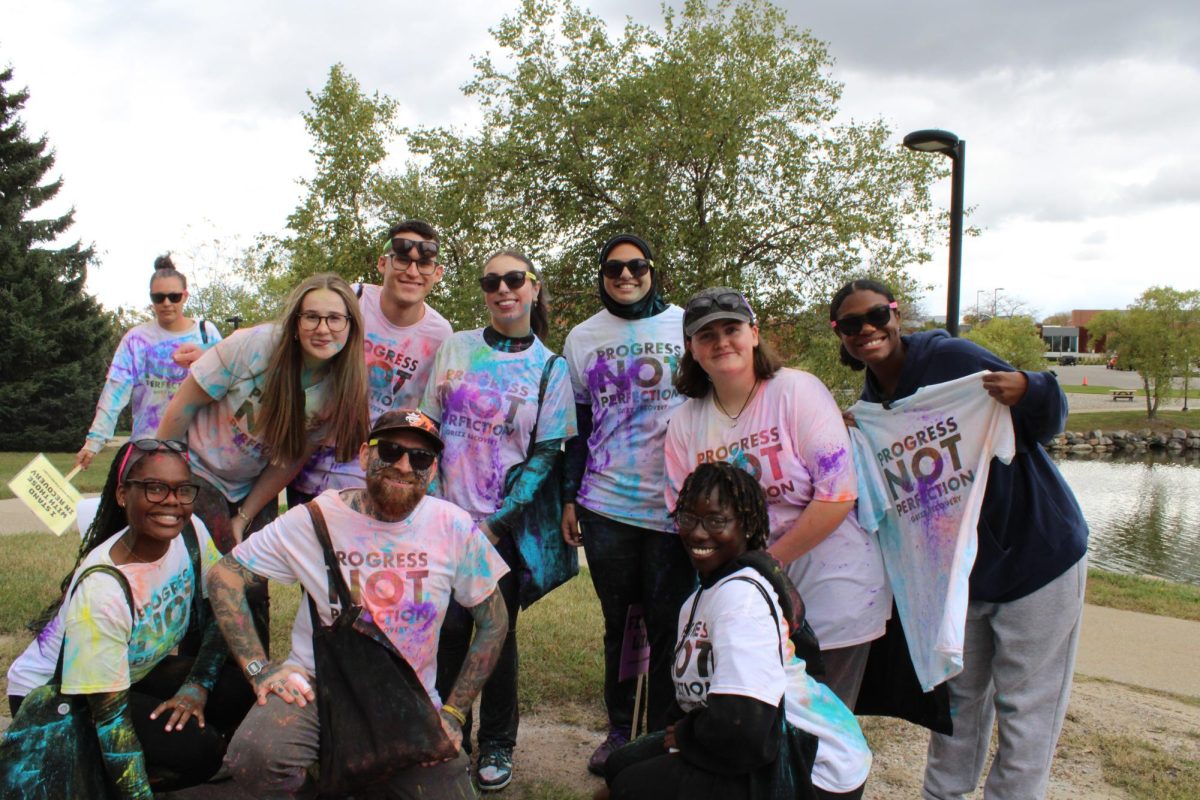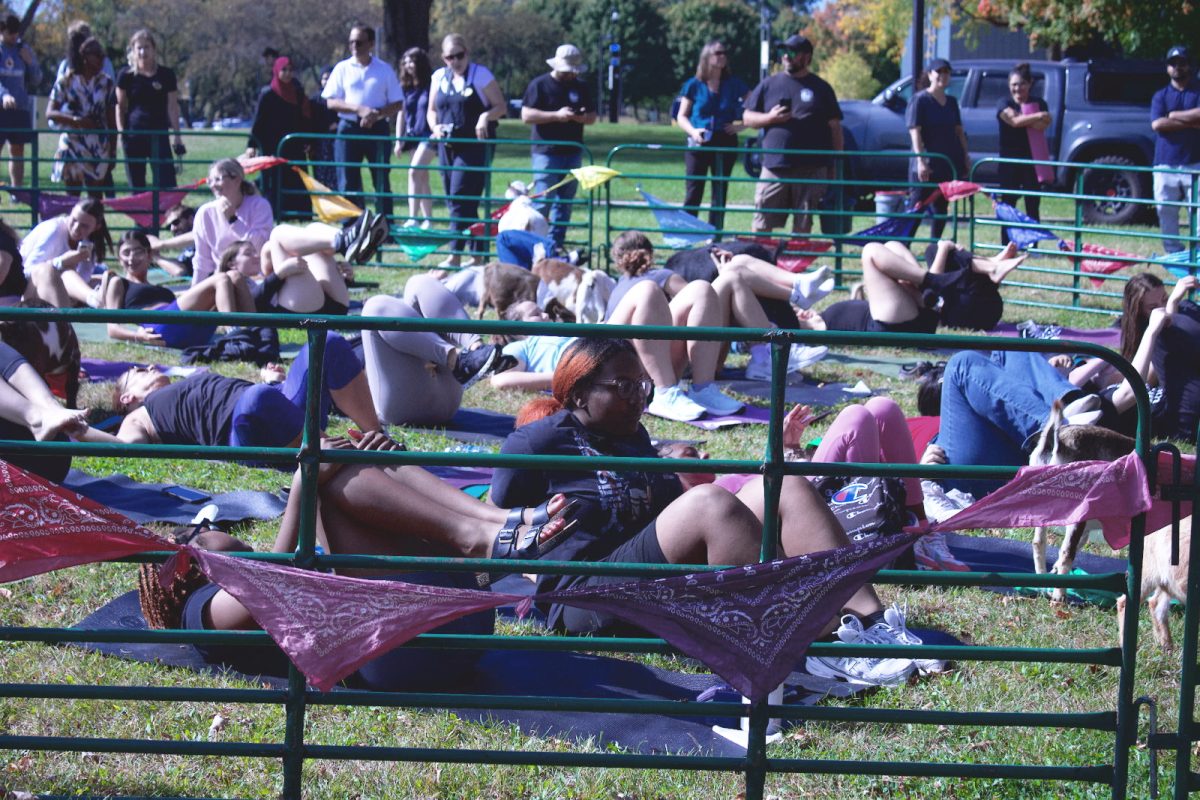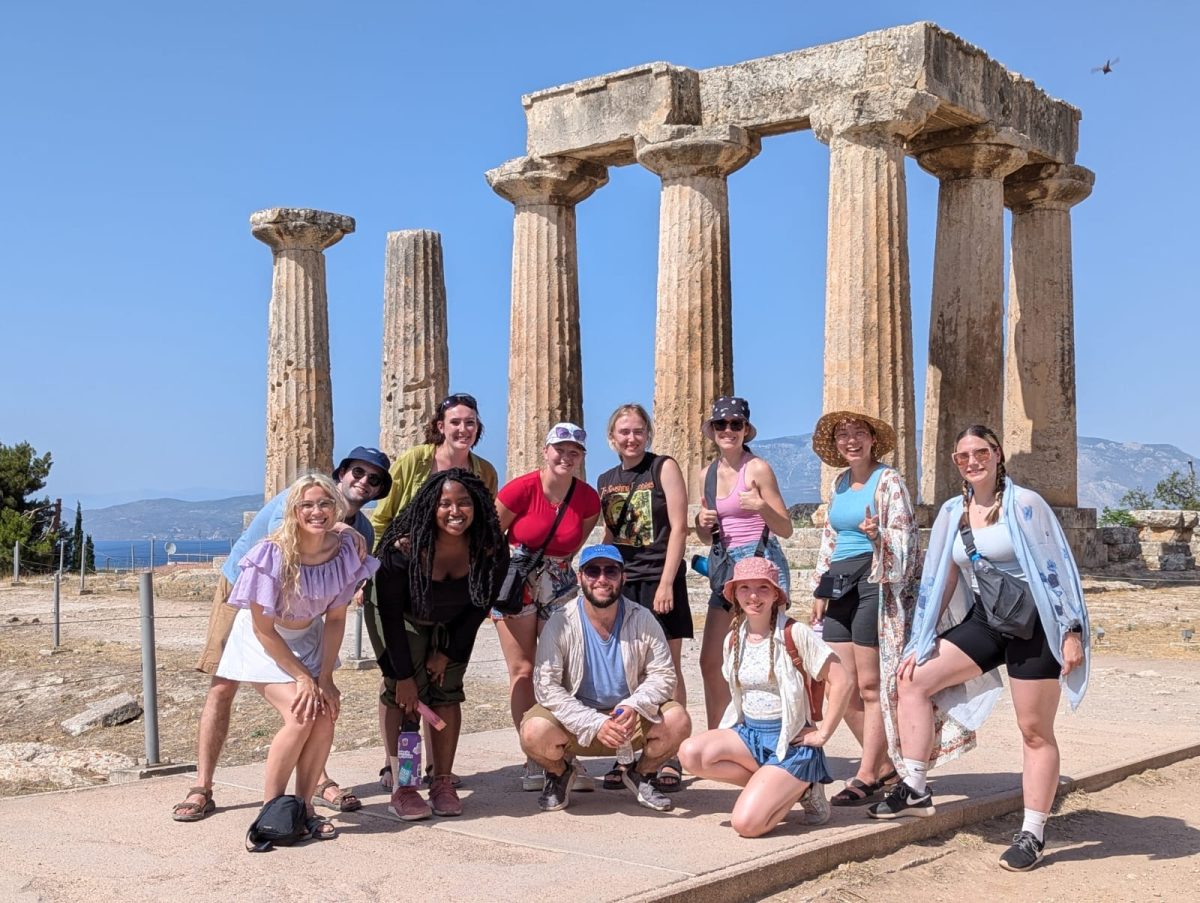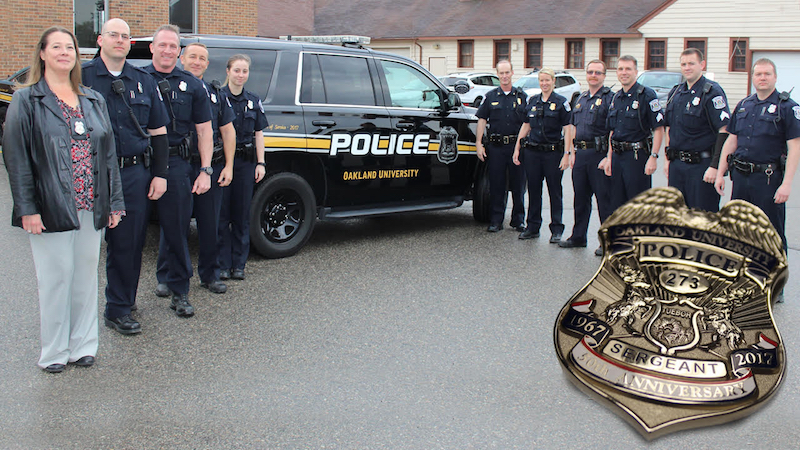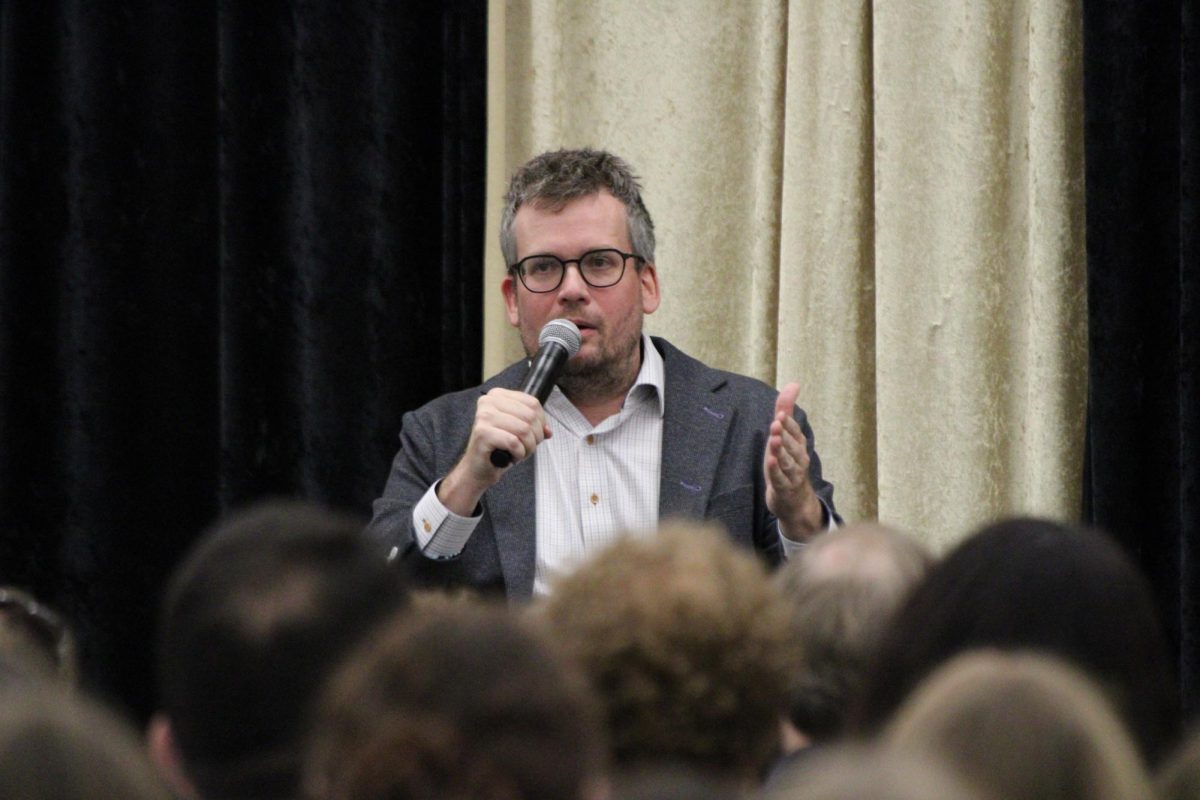On Friday, June 28, Oakland University’s Board of Trustees (BOT) held a meeting to discuss new changes to campus, and how those changes will affect student experience, payment and lifestyle.
OU celebrated its achievements in various fields including research, innovation, nursing and athletics. Speakers highlighted new opportunities on campus and emphasized the importance of civic engagement on campus.
Two new degree programs, new buildings on campus, tuition increases and a new proposed budget were among some of the topics discussed at the meeting.
At the end of the meeting, Robert Schostak, chair of the BOT, officially stepped down from his role and a new board chair and vice board chair were appointed.
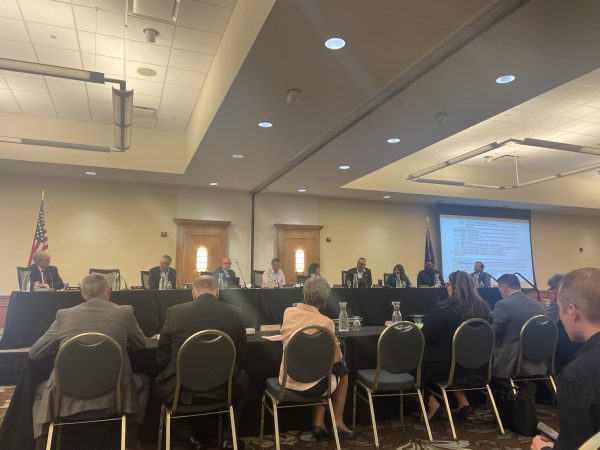
President’s Report
OU President Ora Hirsch Pescovitz began the meeting by acknowledging the recent shooting at the Rochester Splash Pad, and took a moment of silence to honor those affected.
In terms of campus advancements, OU has two new buildings opening on campus soon. The Research and Innovation Center (RIC) will have a grand opening in May, and will provide research space for manufacturing, AI, data science, cybersecurity and much more.
Secondly, South Foundation Hall will open for classes in the fall semester for students. The project was a $40 million modernization, in which $30 million was received in capital outlay in state funds.
Pescovitz talked about recent OU successes including OU men’s basketball and their appearance during March Madness — including winning the McCaffery Trophy.
Additionally, Pescovitz touched on the successes of spring commencement and shed light onto people who received honorary doctorate degrees at graduation.
“We graduated nearly 2,600 graduates in six separate ceremonies. We had almost 12,000 guests and 1,300 virtual guests from around the world through our live streaming ceremonies,” Pescovitz said.
Pescovitz also talked about recent events such as the Nightingale Awards for Nursing Excellence and the Freedom of Speech Contest.
Additionally, two faculty members — Biology Professor Scott Tieges and Distinguished Professor of Physics Andrei Slavin — were both recognized for their contributions to their fields.
Pescovitz also touched on the subject of OU student voter engagement. According to the National Study of Learning, Voting and Engagement (NSLVE), nearly 57% of OU students voted in 2022, which is up 10 points from 2018 and more than 25 points higher than the national average. OU maintains nearly a 90% voter registration rate.
General Fund Budget and Tuition Rates for FY2025
The budget was one of the most important topics discussed at the meeting, with the fiscal year of 2025 budget proposal being approved after discussion. Considerations impacting the tuition rate proposal included inflation, sustainable budget forecasting and multi-year projections. The proposed budget included an undergraduate tuition increase of 4.5% and a graduate tuition increase of 4.2%.
“Inflation, obviously, is a major factor. It continues to be a factor. The state of Michigan is over 3% as a business, and we’re suffering from inflation. Our personal finances are also impacted by inflation, and we’re really trying to address and try to keep up with the cost of living for students, but the only consideration is ensuring that we have a sustainable budget that doesn’t get us in trouble,” Stephen Mackey said.
The budget covered multiple topics including $42 million in financial aid for students, investments in mental health and campus security. The budget also allocated a 2.75% increase for staff pay.
Just 48 hours before the board meeting, the state of Michigan officially allocated funds to universities. OU had used the expected budget from the governor’s office. However, after the official allocation, the budget had to be changed from the predicted budget as state allocation was less than anticipated. Instead of a predicted 2.5% budget from Michigan funding, OU only received 1.5%.
“Yesterday morning, [Michigan] voted on the state budget, and we were working on a different assumption. We had an understanding of this state’s budget based on the governor’s proposed budget. The governor had proposed 2.5%, the Senate and the House, they all proposed higher than that. So we figured that conservatively, the least we would get would be 2.5%,” Pescovitz said.
“Steve and his team have been working diligently for weeks on our budget proposal, based on an assumption that we would have 2.5% from the legislature in our base. The difference between 2.5% in the base and 1.5%, that difference to our budget is three quarters of a million dollars. And I just want people to understand that we work on such a tiny margin here that three quarters of a million dollars is really substantive for us,” Pescovitz said.
In terms of allocation, 65% of expense increases are going toward employees, students and mental health for a total of $9.7 million. A graduate assistant wellness stipend of $231,000 and a mental health support expenditure of $200,000 were both included.
At the end of the presentation, Mackey shared some meaningful statistics, including that OU is the 2nd lowest state investment per degree in Michigan. OU also has the highest retention in Michigan, with around 90% of graduates staying in state.
OU is not the only Michigan school to experience a tuition bump, MSU notably saw a similar change in tuition. First-year housing and dining costs increased by 7%, while in-state undergraduate tuition increased by 2.7%.
Bachelor of Science in Engineering Degree in Mechatronics and Robotics Engineering
The field of mechatronics and robotics is experiencing exponential growth and will continue to reshape various industries. Other colleges around Michigan including Michigan Tech, LTU and the University of Michigan already have a Robotics Engineering program. OU has been offering a Master of Science in Mechatronics for around 16 years already.
The program will provide career options in various fields such as manufacturing, allowing students to find work in the Metro Detroit area. The proposed program has been in the works for over two years as a collaboration among all SECS departments. In terms of budget, the majority of resources are already available, including faculty and courses.
“We ended up creating this program, which is honestly an umbrella. It’s not like other individual programs, we saw that this is sustainable. We created it in a way where we can add things as we go along and have additional tracks. I want to highlight that this research has been happening for the last 15-20 years. We only need two more classes,” Osamah Rawashdeh, professor and chair of electrical and computer engineering, said.
Students can choose to concentrate in a specific subject area of the field to further improve professional development and gain a title on their transcript. The optional major-dependent concentrations include Automotive Mechatronic Systems, Autonomous Vehicles, Human-Robot Interaction and more.
This new degree addition hopes to enhance research opportunities and industry collaborations by furthering developments in faculty expertise and helping OU’s reputation in the field of robotics.
A Master of Science in Energy Engineering was also introduced by Louay M. Chamra. The program also highlighted the market analysis, growing data growth job trend and summary of need for the program in the engineering field. Both programs were approved by the board.
Resolution Passed Honoring Robert I. Schostak
Schostak, the chair of the BOT, concluded his final meeting with the official title. Parts of the meeting were dedicated to honoring his work at the university and acknowledging the major impact he has had.
“To say it’s been an amazing experience, it’s inadequate. Those words don’t work. Being in a place like Oakland University has been, for me, incredibly important and a big part of my life. I graduated here in 1978, and I tried to make myself available back to the university,” Schostak said.
Appointment of Board Chair and Vice Chair
New appointments of the BOT concluded the meeting following Schostak stepping down, with Joe Jones being appointed as board chair and Brian Calley being appointed as vice chair. Both approvals were unanimous.
There were no new items for consideration or action items discussed. The meeting was adjourned with no further comments from the public.



